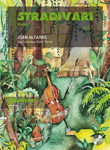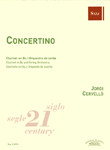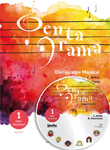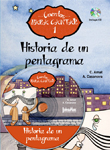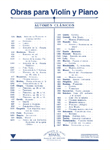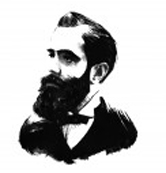
CASSADÓ, Joaquim
Mataró (Barcelona) 1867 - Barcelona 1926
Cassadó showed a great musical talent since childhood: he began his musical studies at the age of six with the music director of the local church of Mataró. At the age of fourteen he entered the seminary with the idea of wanting to dedicate his life to the church and develop his gift through religion. The musical education that Cassadó received from the different ecclesiastical musicians was of a high level and, probably, the best that he could receive in Spain at that time. At twenty years old he met Agustina Moreu and soon made the decision to leave the church and marry her. The wedding took place on September 7, 1891 in Barcelona. From the union, four children were born: Agustí, Montserrat, Gaspar and Josep. Cassadó continued working as a musician in several churches in Barcelona, reaching more than 300 religious works. His 1902 dramatic Sinfonia premiered in Nuremberg, Germany, and later appeared in France where it was very well received by critics and audiences. In 1904 his opera La Bohème premiered at the Teatro Apolo in Barcelona and was performed twenty-eight times, before going on tour throughout Spain. The enormous success achieved meant that Cassadó left his work in the churches to focus his efforts on composing secular music. The opera Lo monjo negre [The black monk] was translated into Italian and premiered at the Gran Teatre del Liceu in Barcelona in 1908, where it would be replenished later, in the 1920s and 1921s. A great success. Also in 1908, the first edition of the magazine Mataró Artistic published a brief interview with Cassadó, in which he was asked about his favorite schools and composers. The composer answered that they were the German school, with Bach, Beethoven and Gluck, and the French, with César Frank. He also stated that Bach's San Mateo Passion and Frank's Piano Quintet were probably two of the works that had most impressed him.
Joaquim and Agustina decided to open a shop selling and renting pianos, Cassadó i Moreu, which would open its doors around 1906 on the well-known Paseo de Gracia in Barcelona. Agustina was also in charge of seeking scholarships and support for her talented children. He asked for an official audience with the Queen of Spain, with the mayor of Barcelona and with other important industrialists and members of the bourgeoisie.
Agustí and Gaspar were very talented musicians. Agustí (1893) was an excellent violinist. Gaspar (1897) was consecrated as one of the great chelistas of the twentieth century. So much talent led the family to decide to move to Paris in 1907, to offer better musical training to the young brothers. A considerable scholarship granted by the mayor of Barcelona allowed them to study with the best teachers of the time. Agustí studied with Jacques Thibaud and Gaspar with Pau Casals. Joaquim formed with his two children the Trio Cassadó, which was very popular in France, the United Kingdom and Germany. Proud of his children, Cassadó composed a large number of works for them: concerts for violin, cello and piano, as well as chamber music and solo piano pieces. The First World War forced the family to return to Barcelona in 1914.
On January 13 of the following year the tragedy hit his family: Agustí lost his life due to a typhoid fever, ending the trio. As a result of this event, Joaquim began to play less and less and devoted most of his time to composition and teaching in Barcelona. After his death, which occurred on June 1, 1926, his hometown of Mataró dedicated a street to his memory and that of his children: Carrer dels musics Cassadó [Street of the musicians of Cassadó].
See all works of this author-
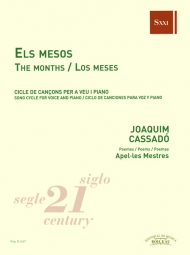
Els mesos
Author: CASSADÓ, Joaquim
27,30 €
Reg.: B.3667
Instrument: Voz y Piano -
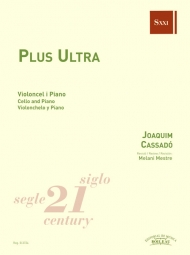
Plus Ultra (Cassadó)
Author: CASSADÓ, Joaquim
16,80 €
Reg.: B.3724
Instrument: Violonchelo y Piano -
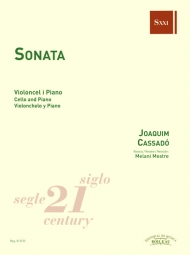
Sonata (Cassadó)
Author: CASSADÓ, Joaquim
26,25 €
Reg.: B.3733
Instrument: Violonchelo y Piano -
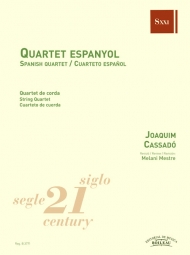
Cuarteto Español (Cassadó)
Author: CASSADÓ, Joaquim
32,75 €
Reg.: B.3771
Instrument: Cuarteto de cuerda -
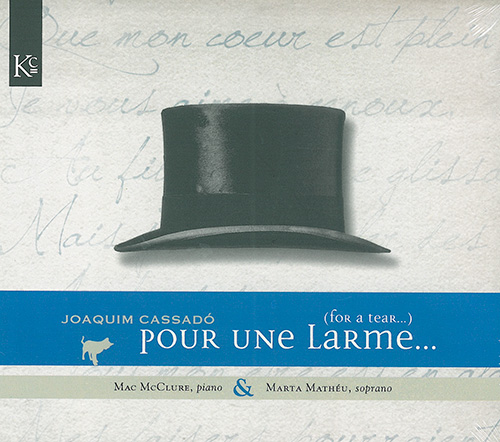
Pour Une Larme
Author: CASSADÓ, Joaquim
12,00 €
Reg.: CD0032
Instrument: Piano -
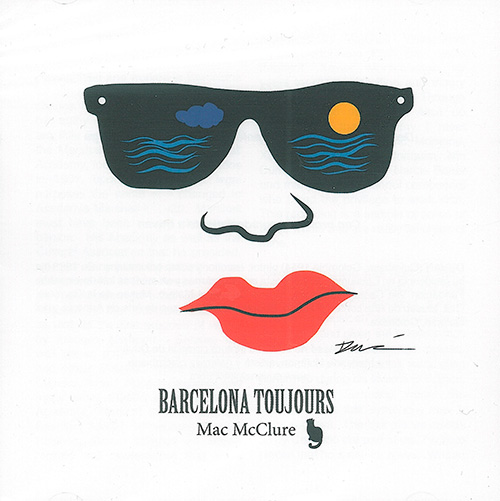
Barcelona Toujours
Author: ALBÉNIZ, Isaac; CASSADÓ, Joaquim; COMELLAS, Joan...[+]
12,00 €
Reg.: CD0036
Instrument: Piano - Voz Sola

